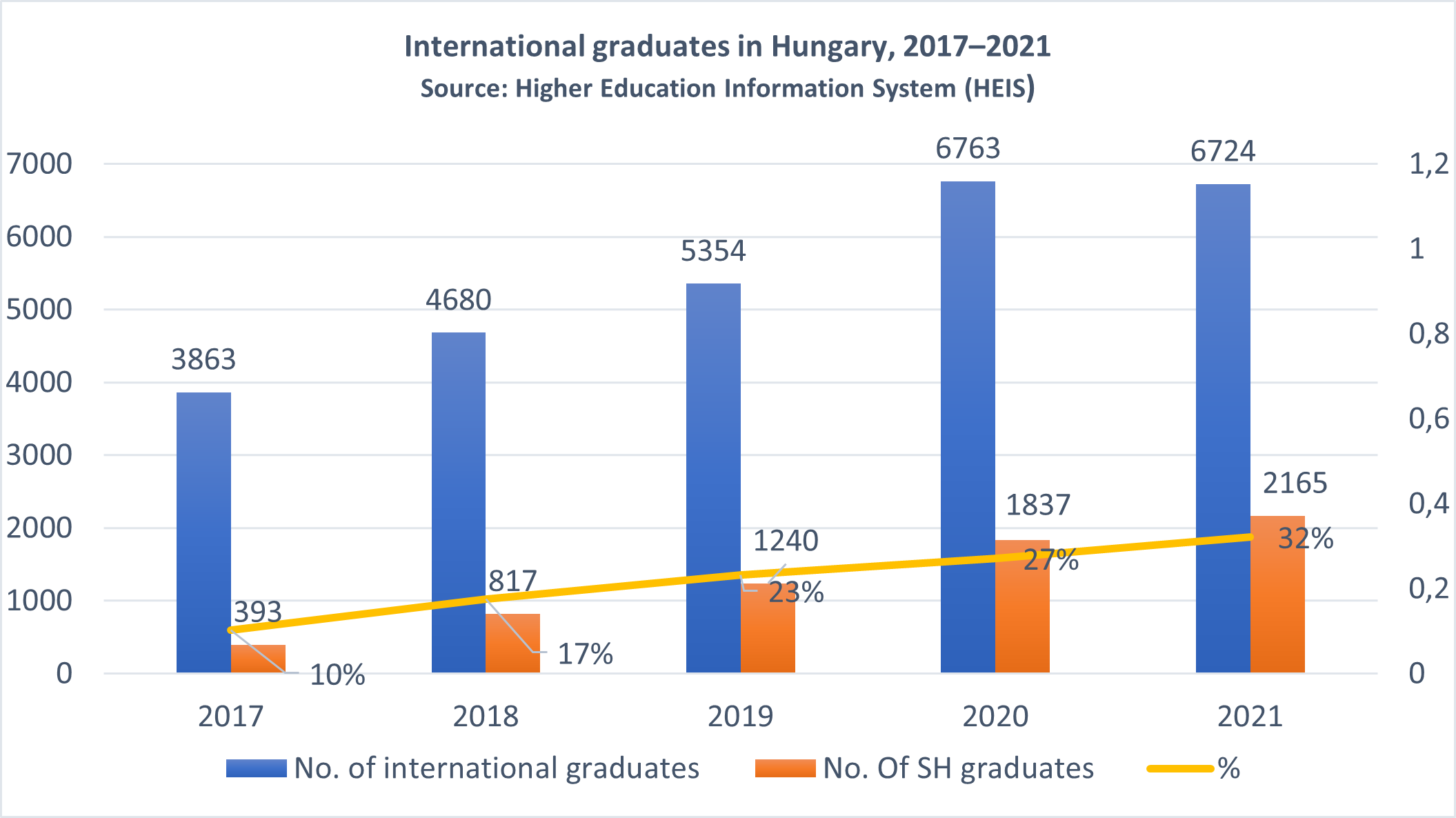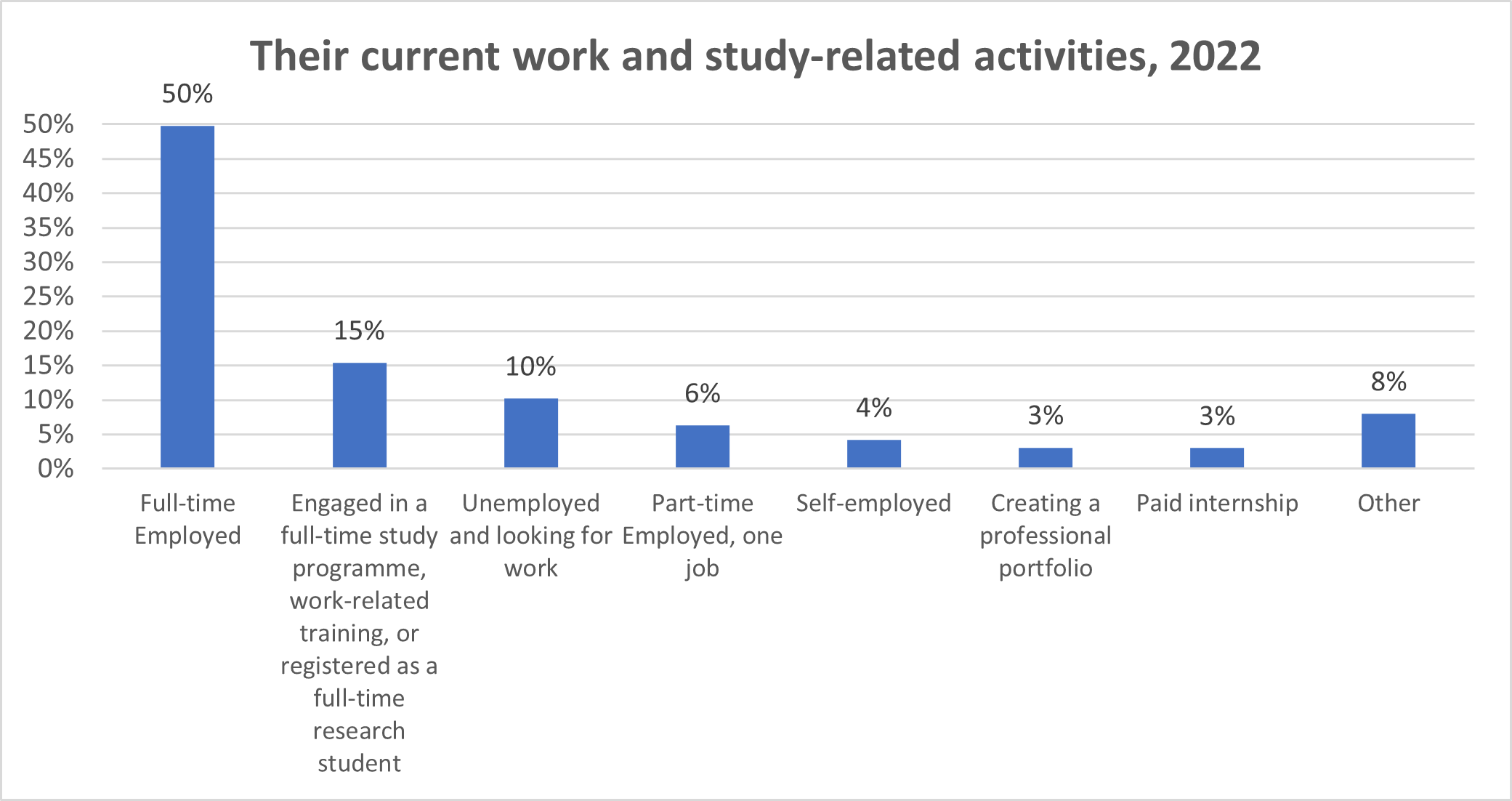
The intensive international student mobility has drawn attention to the question of the labour market aspects of international graduates. In Hungary, the career tracking of international students has not been at the center of research in the past years. Our work in this field aims at filling this research gap in the Hungarian context.
Navigation in the labour market. Career Tracking Survey of International Graduates
Before 2005, when a new act on higher education came into effect, the graduate tracking had consisted of occasional research projects at some universities in Hungary. Since the Bologna process and the European integration, the career tracking of domestic graduates has been a central issue in higher education policy in Hungary. Universities and organizations, which have participated in implementing the national-level system of the Graduate Career Tracking System (GCTS), have gained extensive experience in this field. Drawing upon this knowledge, Tempus Public Foundation in collaboration with the Educational Authority conducted research on international graduates in 2020.
The research entitled Career Tracking of International Graduates aimed at providing a general picture of the educational and social background of international graduates who completed their studies in Hungary between 2012 and 2019. The survey examined their transition to the labour market, and their partnerships and connections with Hungary. Based on this research, in 2021 and in 2022, Tempus Public Foundation conducted surveys on graduates who pursued their degrees in the framework of the Stipendium Hungaricum (SH) program.
As there was a steady rise in the number of international full degree mobile students in the last decade, the number of international graduates has been soaring too. In 2018, more than 3000 international students completed their studies, while in 2021, almost 7000 international students obtained their degrees at universities in Hungary. Predictably, this number has been expected to grow further in the future.

The career path of recent graduates is difficult to describe. Relevant studies suggest that the career route of international grads is much more complex than domestic students’ careers. Our research, which strengthened the results of other studies, explored that the high rate of recent international grads usually returned to education, and the rate of unemployed or jobseekers is also higher than the average. In 2022, 50% of respondents claimed that they were full-time employees, nearly 10% were unemployed or job seekers and nearly 6% had part-time jobs. There is a noticeable correlation between their study level and current work. For instance, 40% of Bachelor grads, 53% of Master grads and 58% of grads with doctorate have full-time job. It is an important difference by study level that the post-study route of the undergraduates is more diverse than other graduates. The rate of bachelor students who return to education is higher than master’s or doctoral graduates.

They need more than a diploma
The employability of grads is influenced by various factors. Our research in 2020 focused on how their knowledge and job-related skills could be applied in the labour market. Having a diploma is an important factor in the labour market, though its value varies by industries and sectors. Professional and generic skills became increasingly important in all fields. The role of universities is essential not only in the development of academic knowledge but also professional skills. Recent graduates sometimes underestimate the importance of general and professional skills compared to their diplomas. Concerning various skills, international graduates assessed their higher education studies as useful in developing presentation skills, and less useful in improving written communication skills.
Higher education is an important field for building up professional or personal communities. In the labour market, the relationships gained during higher education studies also play an important role. A wide range of strategies for finding jobs included leveraging personal connections, and many recent grads found their first job through a previous internship or other work-related connection. Building up a professional community takes time: international students should be given the opportunity to create relationships with professional communities during their higher education studies, for example during an internship program or participating in research-related or other employability-related activities.
Do they stay or go?
Another important question is how many international students stayed in Hungary or left our country after gaining their degree. According to key research findings, two years after their graduation, 39% of international graduates left Hungary to work or study in another country. This rate is different by study level. Bachelor grads are most likely to stay in Hungary, which could have many underlying reasons. The rate of master’s grads who went to a third country was above average. It means that almost 20% responded that they were living in another country. A high rate of Ph.D. holders returned to their home country.
Among the reasons for leaving Hungary were close family relationships, the lack of Hungarian language knowledge, and the local labor market conditions. These also affected their labour-market opportunities, as insufficient knowledge of the Hungarian language, little work experience and the attitude of employers can also be hindering factors.
Another interesting point to consider is how international graduates retrospectively evaluated their higher education studies. In 2020 nearly three-quarters of respondents in the survey are satisfied with higher education in Hungary. 53% of those who surveyed considered the Hungarian diploma more valuable than the diplomas issued by universities of their home country, while 37% evaluated it as equivalent.
The research report published in 2020 is available in Hungarian on our website.
Last modified: 28-10-2022















